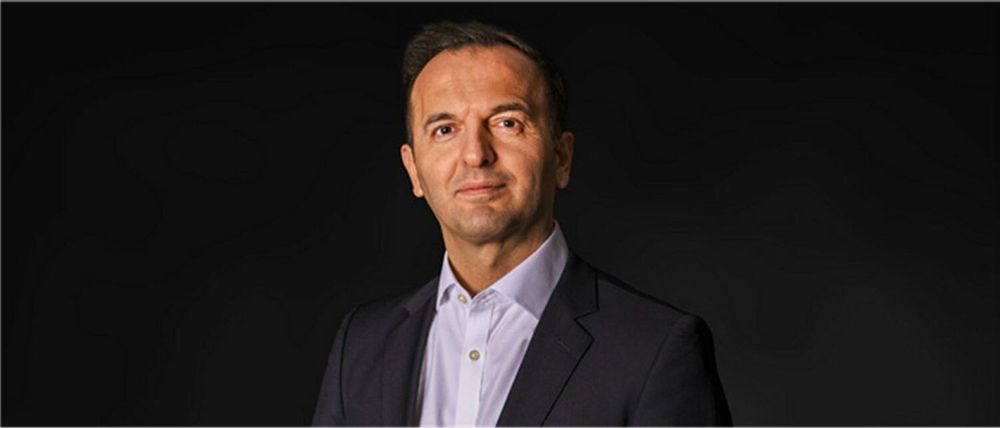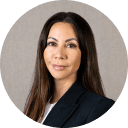In an interview with Moneycab, Bekim Laski, CIO of smzh, discusses the unique role of "service alpha," holistic advisory as a key differentiator, and why smzh makes financial solutions accessible to everyone, regardless of income or wealth.
How is smzh currently positioned compared to other Swiss financial service providers?
smzh positions itself as an independent financial architect with a clear focus on a holistic approach. Our "Family Office light" concept not only covers investments but also real estate, retirement planning, taxes, succession, and business financing. This deliberately differentiates us from competitors who typically focus only on securities, or from purely digital providers who neglect personal contact.
"We make professional investment solutions accessible starting from just a few hundred Swiss francs and thus offer opportunities that were previously reserved primarily for high-net-worth private banking clients." Bekim Laski, CIO smzh
At the core of our advisory process is the principle of serving our diverse clients according to their individual needs, regardless of income or wealth. By making professional investment solutions accessible with entry points as low as a few hundred francs, we lower barriers and offer opportunities formerly limited to wealthy private banking clients. Our growth is based on building close relationships with clients, offering institutional quality and digital efficiency.
What quantitative criteria and benchmarks does smzh use when developing individual investment strategies, and how often and according to what parameters do you adjust your strategic asset allocation?
At smzh, the comprehensive analysis of total wealth is central. We take into account all assets – bankable or not – to obtain a complete picture. This approach avoids "mental accounting" and lays the foundation for truly customized strategies. Our clients thus have access to a comprehensive advisory architecture across investments, finances, mortgages, real estate, retirement planning, insurance, legal, and tax matters.
Strategic asset allocation is reviewed at least once a year and adjusted as market conditions or client needs change. If significant events occur or there are material changes in a client’s situation, we make adjustments even more quickly if necessary.
How are ESG (Environmental, Social, Governance) criteria quantitatively integrated into your investment recommendations?
ESG is an integral part of our advisory process, but never an end in itself or an obligation. We align with the personal values and objectives of our clients and integrate ESG where it makes sense—be it in investments, real estate deals, or corporate financing. This creates transparency and avoids greenwashing.
ESG strategies should involve much more than simply buying certain products—they must be based on individual convictions and long-term goals. That’s why a professional and solution-oriented approach to ESG integration is especially important to us.
You have set ambitious growth targets. What specific measures have you defined to achieve this growth?
Our growth is deliberately qualitative. We are not focused on growth at any cost; instead, we aim to create added value for our clients. We focus on three main areas:
- Holistic advisory – we connect investments with topics such as real estate, retirement planning, taxes, or succession, creating a real difference versus traditional banking.
- Digital efficiency – we automate wherever it makes sense, freeing up more time for personal client interaction.
- Strong partnerships & talent – we are purposefully expanding our network and investing in the continuous development of our team.
"Our growth is deliberately qualitative. We are not focused on growth at any cost, but on creating added value for our clients."
We see our future as the harmonious combination of innovation and tradition: leveraging technology where it truly adds value, maintaining personal contact where it matters most, and constantly evolving to meet the needs of our diverse clients. This ensures sustainable growth—built on trust, innovation, and client proximity.
What risk mitigation strategies does smzh currently recommend in light of market volatility?
While the future cannot be predicted, volatility and setbacks are inherent elements of any sound investment strategy. The key is to manage them actively. Broad and optimal portfolio diversification remains the best and most cost-effective strategy to hedge against volatility. Effective hedging strategies always involve costs, whether in the form of premiums, opportunity costs, or reduced flexibility. Sound risk management, therefore, considers not only downside protection but also the economic implications of protective measures. We continuously monitor volatility indicators and implement targeted strategies based on market conditions.
"Broad and optimal portfolio diversification remains the best and most cost-effective strategy to hedge against volatility."
Currently, Swiss investors face two main challenges: First, persistently low interest rates have made traditional CHF bonds unattractive, necessitating a rethink of classic portfolio structures. Alternative investments such as private debt, private equity, or real estate can be complementary—provided investors are comfortable with illiquidity risks.
Second, in addition to their stabilizing effect, Swiss equities often have low exposure to technology-driven growth themes. For this reason, we recommend regular review of Swiss equity allocations and targeted diversification into international, high-growth, and quality dividend segments.
How have the portfolios managed by smzh performed relative to relevant Swiss or sector benchmarks such as the SMI over the past two years?
We do not measure our success by specific benchmarks like the SMI, but rather by the stability and goal achievement for our clients. Our portfolios are globally diversified and combine traditional investments with alternatives such as private debt and real estate.
The average return of our portfolios has been highly satisfactory compared to the market. For us, however, the key is not short-term performance alpha but rather what we call "service alpha": personal attention, holistic strategies, and closeness to our clients. That is where our real value lies.
What challenges do you see for smzh over the next two years, especially regarding regulations, margin pressure, and competition from digital providers? How are you addressing these challenges?
The biggest challenge is the increasing complexity of financial advisory: Clients nowadays expect integrated solutions that combine investments, real estate, retirement planning, taxes, and succession. Addressing these areas in isolation leads to inefficiencies—an outcome we avoid through our interdisciplinary approach.
"We deploy technology precisely where it adds genuine value and combine it with personalized guidance."
We address regulatory changes and margin pressures with lean structures and efficiency gains, while maintaining personal client contact. We don’t view digital providers as a threat, but as motivation: we leverage technology where it creates real value and combine it with individual support. This creates a hybrid model of innovation and personal closeness that clearly sets us apart.
Finally, if you had two wishes, what would they be?
My first wish is that we continue to strengthen the trust of our clients and have the privilege of accompanying them for the long term—especially in times of uncertainty, when trust is more important than ever.
My second wish is that, as a team, we preserve our culture of innovation and openness. Only by doing so can we keep evolving smzh and continue offering solutions that go far beyond classic financial advisory.


